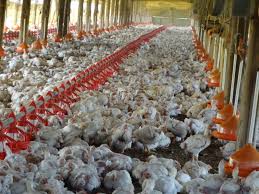Argentina is experiencing a historic heatwave, with temperatures reaching beyond 40 degrees Celsius (104 degrees Fahrenheit), making it the world’s hottest country for a time, straining electricity grids and driving citizens to seek refuge in the shade.
With temperatures in areas of the South American nation reaching 45°C (113°F), power grids in and around the populous capital city of Buenos Aires collapsed, leaving hundreds of thousands of people without energy.
“When I got home we didn’t have electricity, and the house was a furnace,” Jose Casabal, 42, recalled, as he hurried his children away to find a cool place. “So I took them to their grandmother’s house to swim in the pool,” says the narrator.
Argentina, where dry hot weather brought on by the La Nina weather pattern is already doing havoc on crops, was the hottest area on the planet for several hours, displacing sections of Australia that had cooled over the night.
Gustavo Barrios, 34, from Tigre, sat in the shade of some trees and stated, “Even early morning it was really hot around 31 degrees.” “We were using the fan to blow hot air because I do not have air conditioning at home. It’s getting out of hand.”
Residents were advised to avoid the sun during the warmest part of the day, wear light clothing, and remain hydrated, according to local officials.
“We have to be very careful these days,” remarked Horacio Rodriguez Larreta, the mayor of Buenos Aires.
According to meteorologist Lucas Berengua, the heatwave is out of this world and might set new records across the country.
“This is a heatwave with extraordinary features, with extreme temperature values that will be evaluated long after it is over,” he added. “It may set some historical records for Argentina temperatures and heat endurance.”
Some people were concerned about climate change and increasingly extreme weather. Argentina has had unusually high levels of wildfires in recent years across its main river delta, and the Parana River has dropped to roughly 80-year low water levels.
Marta Lorusso, 59, an architect, said, “I was born here in a temperate climate, and I witnessed how the temperature changed over the years, and it’s not what we’re used to.”
“This, combined with the low pressure, is killing me; I can’t take it anymore. I drink a lot of water and do my best. On top of that, there was no electricity. I’m at a loss for what to do.”

















